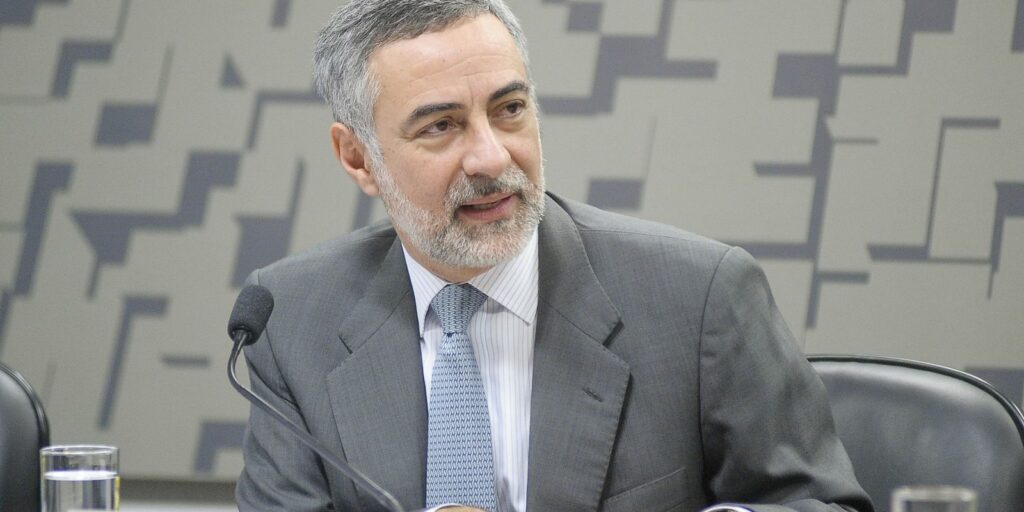The Commission for Follow-up on Ruling T-760 of 2008 delivered its proposal for health reform to the Ministry of Health on January 5. This was stated in an interview with El Tiempo, Pedro Santana, spokesman for this advisory body to the Constitutional Court, which is made up of medical, hospital, patient, trade union and other representatives of civil society organizations.
(Health reform in Colombia: the role that the WHO would play).
Since the beginning, the commission has submitted reports to the Court and, in 2021, after a social summit and discussions in more than 30 commissions, he prepared a reform proposal that was presented to all the presidential candidates, of whom Gustavo Petro stated that if he were elected president he would adopt it. In this sense, from the position of the president, the discussions have been reinforced until the current proposal is prepared.
This project, according to Santana, eliminates the two regimes (contributory and subsidized) and establishes a single universal system “with the same services for all and a per capita will be established for all citizens that will be assigned regionally to the Regional Health Councils and to the ADRES Regional Offices.”
According to Santana, the initiative is also aimed at recovering some things from Law 100 that disappeared along the way, but with adjustments.
(Health actors ask not to be excluded from the reform debate).
“This project seeks to rescue it by empowering it and giving greater power to the National Health Council, but preventing it from getting involved in administrative matters. This body was there and worked for a few years, but the reforms made it disappear, eliminated it and the bill recovers it and gives it some very important functions in the field of monitoring and permanent evaluation of the operation of the reform and in its ability to propose projects of public health policies and social determinants of health that must be processed by the Ministry of Health before the other government bodies”he added.
The proposal seeks that it be the Single Public Fund and the Adres that is its administrator, who manage the money that the EPS manages today.
“It is not sought, through administrative acts, to put an end to the EPS, they will be able to continue working, but if the reform is approved, they will not manage the public resources destined for health.”
Another substantial change is that the system will be organized around primary health care, through Primary Health Care Centerswhich will have an integral and decisive character.
“All individuals and families will be able to register at these centers and those who require specialized care will be referred to medium and high complexity centers so that they can be promptly attended to.”
In addition, comprehensive and integrated health networks will be created, made up of public, private and mixed hospitals that will serve the population referred by the Primary Care Centers (CAP) and to whom the Adres will pay them directly for their services in accordance with unique rate manuals. .
In addition to this, a unique information system would be created that will operate online and in real time, where all the operations, activities, contracts and benefits of the health system will be recorded.
(The key points that the Petro government’s health reform will have).
“The State does not have this system and it is a breeding ground for opacity and corruption.”
The Superintendence of Health will also be provided with teeth, with the capacity to function in a decentralized manner, with permanent attention 24 hours a day and a period of 72 hours to resolve complaints. Everything so that operators and actors of the system provide health services with opportunity and quality”.
The project also contemplates the employment of health workers, to counteract the perverse effect of the last Law 100 that made them precarious.
“Various studies indicate that 80 percent of this personnel is outsourced, without labor contracts, without social benefits or hired by service provision orders (OPS) or through dubious cooperatives. It is clear that this affects the quality and care”.
Finally, a robust citizen participation system will be put into operation at all levels of the system, from the Primary Care Center. And at the head of this component of participation will work the national health council. It will be the eye of society to take care of public resources for health.
Pedro Santana, spokesman for the Commission who participated in the drafting of the project.
Who are members of the Monitoring Committee
The Follow-up Commission on Ruling T-760 of 2008 and for a structural reform of the health system is an instance of civil society made up of social organizations such as the Colombian Medical Federation, the Association of High-Cost Patients, the Central Unitaria de Workers, Ifarma, the Association of State Social Enterprises, ACESI, the South Latin American Corporation, the Antioquia Roundtable for Health Law, and other organizations and social movements for health. It is an advisory body of the Constitutional Court recognized by it through Auto 316 of 2010 to follow up on the 16 general orders of Judgment T-760.
BRIEFCASE
With information from EL TIEMPO
















